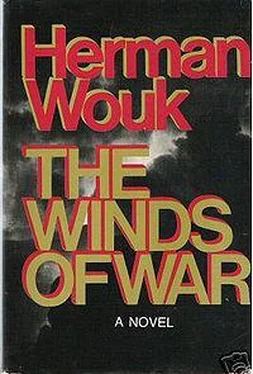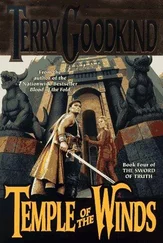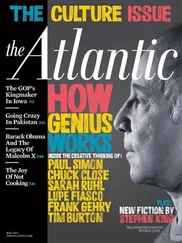Herman Wouk - The Winds of War
Здесь есть возможность читать онлайн «Herman Wouk - The Winds of War» весь текст электронной книги совершенно бесплатно (целиком полную версию без сокращений). В некоторых случаях можно слушать аудио, скачать через торрент в формате fb2 и присутствует краткое содержание. Год выпуска: 1971, Издательство: Collins, Жанр: Историческая проза, на английском языке. Описание произведения, (предисловие) а так же отзывы посетителей доступны на портале библиотеки ЛибКат.
- Название:The Winds of War
- Автор:
- Издательство:Collins
- Жанр:
- Год:1971
- ISBN:нет данных
- Рейтинг книги:4 / 5. Голосов: 1
-
Избранное:Добавить в избранное
- Отзывы:
-
Ваша оценка:
- 80
- 1
- 2
- 3
- 4
- 5
The Winds of War: краткое содержание, описание и аннотация
Предлагаем к чтению аннотацию, описание, краткое содержание или предисловие (зависит от того, что написал сам автор книги «The Winds of War»). Если вы не нашли необходимую информацию о книге — напишите в комментариях, мы постараемся отыскать её.
About the Author
Herman Wouk's acclaimed novels include the Pulitzer-Prize winning
;
;
;
;
;
; and
.
The Winds of War — читать онлайн бесплатно полную книгу (весь текст) целиком
Ниже представлен текст книги, разбитый по страницам. Система сохранения места последней прочитанной страницы, позволяет с удобством читать онлайн бесплатно книгу «The Winds of War», без необходимости каждый раз заново искать на чём Вы остановились. Поставьте закладку, и сможете в любой момент перейти на страницу, на которой закончили чтение.
Интервал:
Закладка:
Pug said quietly, leaning on a patch of clear rail, “Look, unless we’re in the open air like this, you can assume anything we say on this ship will be recorded, one way or another. At the bar, at the table, or even in our stateroom. Have you thought of that?”
“Well, sort of, but — in our stateroom too! Really?”
Pug nodded.
Rhoda looked thoughtful, then burst out laughing. “You mean — you don’t mean day and night? Pug? Always?”
“That’s what this job is. If they didn’t do it, they’d be sloppy. The Germans aren’t a sloppy people.”
Her mouth curled in female amusement. “Well, then, mister, keep your DISTANCE on this boat, that’s all I can say.”
“It’ll be no different in Berlin.”
“Won’t we have our own house?”
He shrugged. “Kip says you get used to it and don’t think about it. I mean the loss of privacy. You’re just a fish in a glass bowl and that’s that. You can never stop thinking about what you say or do, however.”
“Honestly.” A peculiar look, half-vexed, half-titillated, was on her face. “I can’t imagine why I didn’t think of that. Well! They say love will find a way, but — oh hell. It really couldn’t be less important, could it? Can I have my other drink?”
An engraved card, slid under their cabin door shortly before dinner, invited them to the captain’s table. They debated whether Pug should wear a uniform, and decided against it. The guess turned out to be correct. A German submarine officer at the table, a man as short and as taciturn as Victor Henry, wore a brown business suit. The captain, a paunchy stiff man in gold-buttoned blue, heavily joshed the ladies in slow English or clear German, blue eyes twinkling in his weathered fat face. Now and then he flicked a finger, and a steward in full dress jumped to his side. The captain would crackle a few words, and off the steward would bustle with a terrified face, gesturing at the waiters, long tailcoat flapping. The food was abundant and exquisite, the bowl of white and purple orchids spectacular. The parade of wines worried Pug, for when Rhoda was excited she could drink too much. But she ate heartily, drank normally, and delighted the captain by bantering with him in fluent German.
The submarine man’s wife sat on Henry’s left, a blonde in green low-cut chiffon that lavishly showed big creamy breasts. Pug surprised her into warm laughter by asking if she had ever worked in films. At his right sat a small girl in gray tweed, the daughter of Alistair Tudsbury. Tudsbury was the only real celebrity at the table, a British broadcaster and correspondent, about six feet two, with a big belly, a huge brown moustache, bulging eyes, a heavy veined nose, thick glasses, bearish eyebrows, booming voice, and an enormous appetite. He had arrived at the table laughing, and laughed at whatever was said to him, at almost everything he said himself. He was a very ugly man and his clothes did little to mitigate the ugliness: a brown fuzzy suit, a Tattersall shirt and a copious bow tie. He smoked cigarettes, tiny in his sausage-fat fingers; one expected a pipe or a long black cigar, but the cigarette was always smoldering in his hand, except when he was plying a knife and fork.
For all the forced badinage, it was an awkward meal. Nobody mentioned politics, war, or the Nazis. Even books and plays were risky. In long silences, the slow-rolling ship squeaked and groaned. Victor Henry and the submariner exchanged several appraising glances, but no words. Pug tried once or twice to amuse Tudsbury’s daughter at his right, eliciting only a shy smile. Over the dessert, turning from the blonde — who kept telling him how good his German was — he made one more effort. “I suppose you’re on vacation from school?”
“Well, sort of permanently. I’m twenty-eight.”
“You are? Hm! Sorry. I thought you were about in my daughter’s class. She’s nineteen.” The Tudsbury girl said nothing, so he kept talking. “I hope you took my stupidity as a compliment. Don’t women like to be thought younger than they are?”
“Oh, many people make that mistake, Commander. It comes of my travelling with my father. His eyes are not very good. I help him with his work.”
“That must be interesting.”
“Depending on the subject matter. Nowadays it’s sort of a broken record. Will the little tramp go, or won’t he?”
She took a sip of wine. Commander Henry was brought up short. The “little tramp” was Charlie Chaplin, of course, and by ready transfer, Hitler. She was saying that Tudsbury’s one topic was whether Hitler would start a war. By not dropping her voice, by using a phrase which a German ear would be unlikely to catch, by keeping her face placid, she had managed not only to touch the forbidden subject, but to express a world of contempt, at the captain’s table on the Bremen , for the dictator of Germany.
Half a dozen early-morning walkers were swinging along, looking preoccupied and virtuous, when Pug Henry came out on the cool sunlit deck, after a happy night second honeymooning. He had calculated that five turns would make a mile, and he meant to do fifteen or twenty turns. Rounding the bow to the port side he saw, far down the long deck, the Tudsbury girl coming toward him, pumping her arms and rolling her hips. She wore the same gray suit. “Good morning.” They passed each other with nods and smiles, then on the other side of the ship repeated this ritual. At the third encounter he said, reversing his direction, “Let me join you.”
“Oh, thank you, yes. I feel stupid, preparing to smile forty feet away.”
“Doesn’t your father like to walk before breakfast?”
“He hates all forms of exercise. He’s strong as a bull and nothing he does makes much difference. Anyway right now poor Talky has a touch of gout. It’s his curse.”
“Talky?”
Pamela Tudsbury laughed. “His middle name is Talcott. Since schoolboy days, he’s been ‘Talky’ to his friends. Guess why!” She was moving quite fast. In flat shoes she was very short. She glanced up at him. “Commander, where’s your wife? Also not a walker?”
“Late sleeper. Not that she’ll walk to the corner drugstore if she can drive or hail a cab. Well, what does your father really think? Will the little tramp go?”
She laughed, a keen look brightening her eyes, evidently pleased that he remembered. “He’s come out boldly to the effect that time will tell.”
“What do you think?”
“Me? I just type what he thinks. On a special portable with oversize print.” She gestured at three deep-breathing German matrons in tailored suits marching by. “I know that I feel queer sailing on a ship of theirs.”
“Didn’t your father just publish a book? I seem to remember reviews.”
“Yes. Just a paste-up of his broadcasts, really.”
“I’d like to read it. Writers awe me. I have a tough time putting one word down after another.”
“I saw a copy in the ship’s library. He sent me there to check,” she said, with a grin that reminded him of Madeline, catching him in self-importance or pretense. He wished Warren could meet this girl or one like her. Last night he had not paid her much mind, with the busty, half-naked, talkative blonde there. But now, especially with the fresh coloring of the morning sea air, he thought she had an English lady’s face, a heart-shaped face from a Gainsborough or a Romney: thin lips, expressive green-gray eyes set wide apart, fine straight nose, heavy brown hair. The skin of her hands and face was pearl-smooth. Just the girl for Warren, pretty and keen.
“You’re going around again? I get off here,” she said, stopping at a double door. “If you do read his book again, Commander Henry, carry it under your arm. He’ll fall in love with you. It’ll make his trip.”
Читать дальшеИнтервал:
Закладка:
Похожие книги на «The Winds of War»
Представляем Вашему вниманию похожие книги на «The Winds of War» списком для выбора. Мы отобрали схожую по названию и смыслу литературу в надежде предоставить читателям больше вариантов отыскать новые, интересные, ещё непрочитанные произведения.
Обсуждение, отзывы о книге «The Winds of War» и просто собственные мнения читателей. Оставьте ваши комментарии, напишите, что Вы думаете о произведении, его смысле или главных героях. Укажите что конкретно понравилось, а что нет, и почему Вы так считаете.












